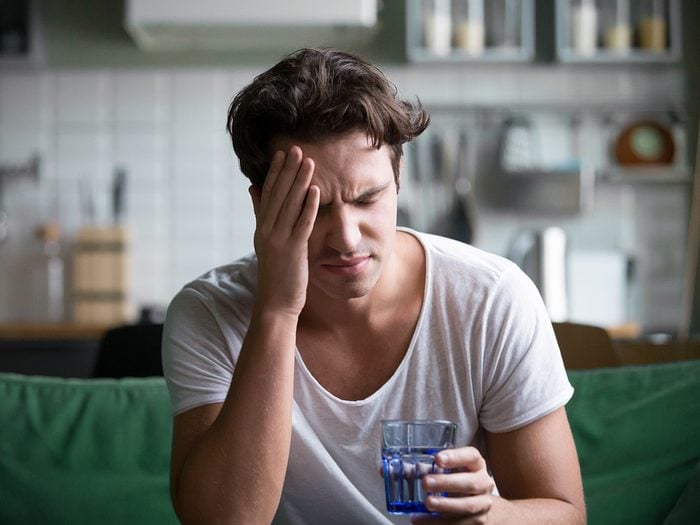
How to prevent dehydration
Maybe you’re guilty of not drinking enough water on a regular basis, but there are also other lesser-known reasons you’re dehydrated. Here are the mistakes that could lead to dehydration—and what to do instead.
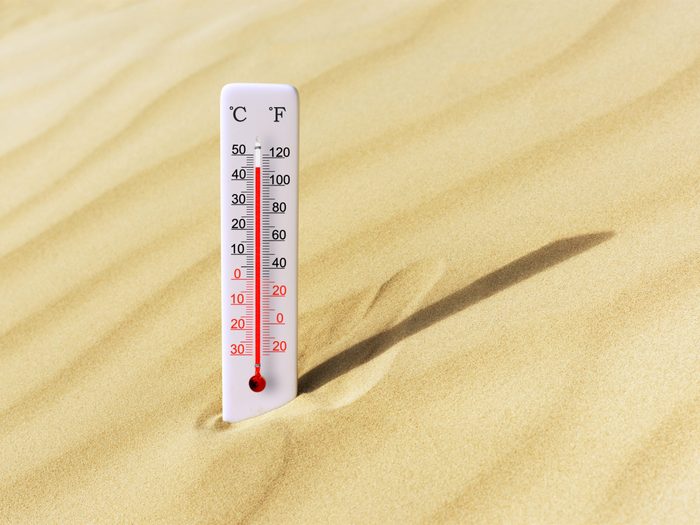
You ignore the weather forecast
Weather affects more than your outfit for the day—changes in climate can also impact your hydration. “If the atmosphere goes from very dry to humid, it can affect how much you sweat, which will then affect your water requirements for the day,” says Shanna Levine, MD, a primary care physician and clinical instructor of medicine at Icahn School of Medicine at Mount Sinai in New York City.
The more you sweat, the more water you lose; plus, changes to air quality can affect your respiratory drive, causing you to breathe off more water and become dehydrated that way, she says. “I encourage my patients to start each day with an eight-ounce glass of water and keep a one-litre bottle with them throughout the day so they can keep track,” says Dr. Levine.
Here’s the summer forecast across Canada, according to AccuWeather.
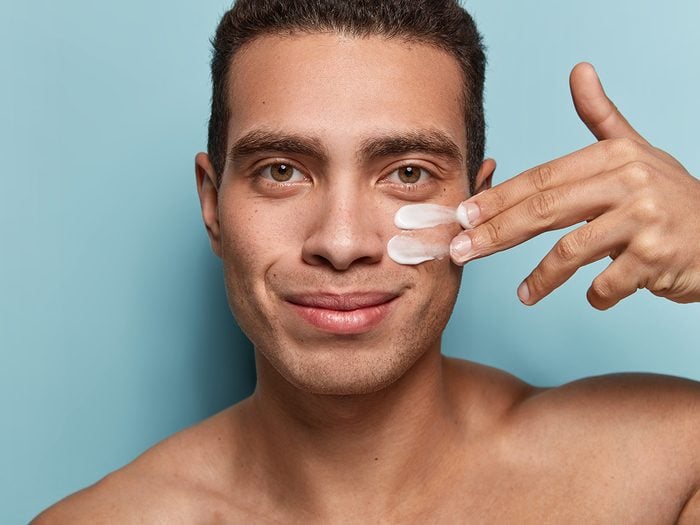
You don’t take care of your skin
Skin is an organ and a barrier to fluid loss; any time it’s compromised by a burn or sunburn, it can struggle to maintain proper hydration levels, says Dr. Levine. Natural aging can also make it harder for the skin to maintain moisture, she says, so it’s important to keep it properly moisturized and protected from the sun.
Want to keep your skin soft, supple and hydrated? Consider adding these complexion-boosting foods to your grocery list.
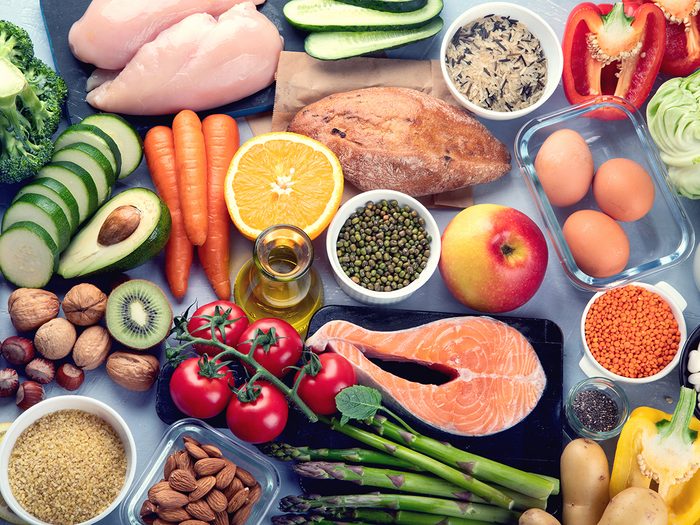
You don’t have a balanced diet
A balanced diet—whole grains, lean protein, and lots of fruits and veggies—is the key to an overall healthy body. But it also quietly contributes to hydration throughout the day. “Fruits and vegetables are super hydrating, especially zucchini, cucumber, and watermelon. Adding these to your diet can really help extend your fluid status. I tell my clients to eat the rainbow,” says registered dietitian Elizabeth Shaw, a wellness consultant who runs the health blog shawsimpleswaps.com.
Learn to spot the signs you’re not eating enough vegetables.

You travel a lot
Travelling can put you in danger of becoming dehydrated. When you stray from routine, your eating habits can take a hit: You grab unhealthy choices on the go or aren’t able to find as many water-packed fruits and veggies. You may also reduce your water intake without even meaning to. “On a long trip or commute, people often drink less to cut down on bathroom breaks. And on vacation, you might not always have water nearby like you do at work,” says Shaw. Monitor your urine; if it’s dark yellow or brown, find time to grab a drink.
Find out what happens to your body when you start drinking eight glasses of water a day.
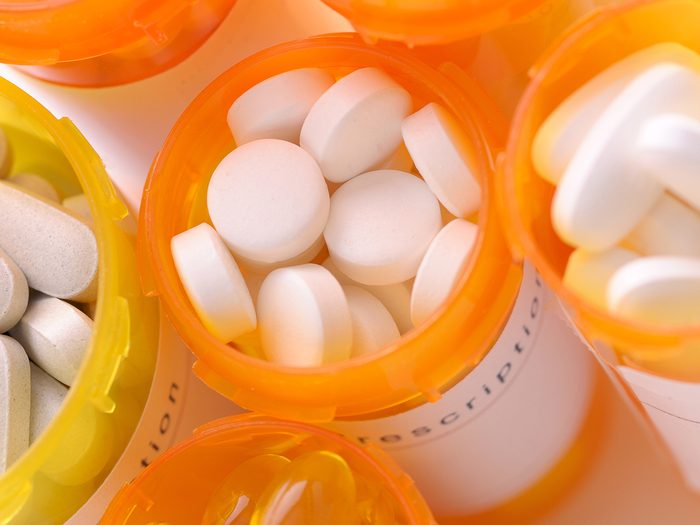
You don’t read the label on your prescriptions
Many medications can act as diuretics, making you urinate more and putting you at risk for dehydration, says Dr. Levine. Know what’s in your medicine cabinet. It’s important to read the labels on each bottle and be aware of all side effects, including dehydration. Other side effects, such as diarrhea or vomiting, can also reduce your fluid levels.
Here are nine questions you must ask your pharmacist when picking up a new prescription.
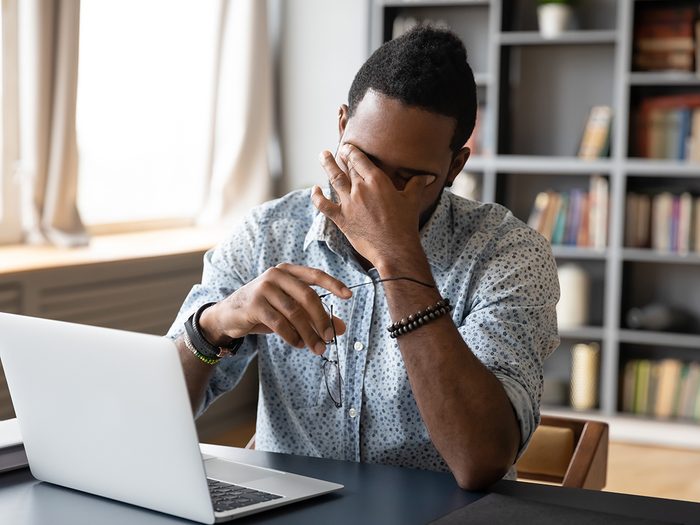
You’re always stressed out
Stress causes your adrenal glands, which sit right above the kidneys, to release more of the stress hormone aldosterone, which regulates fluid and mineral levels in the body. More aldosterone signals your kidneys to take in more sodium, which then has to leave the body in the form of urine, depleting your fluid levels, says Dr. Levine.
Check out these herbs that can help ease stress.
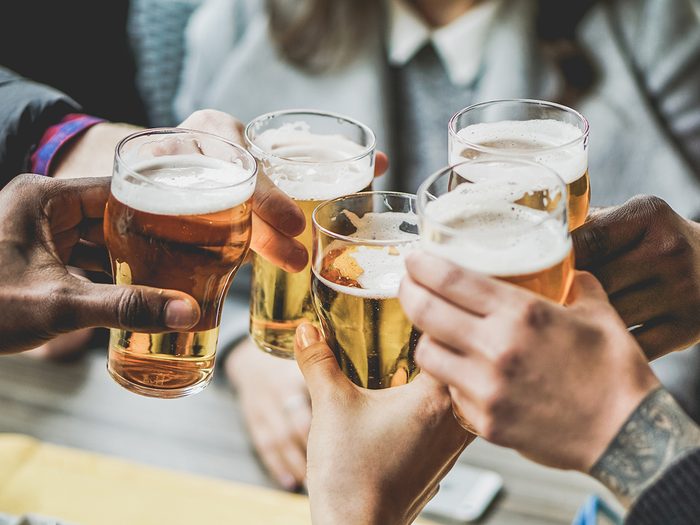
You frequently imbibe
Pair your alcohol of choice with a glass of water to help ward off dehydration. “Alcohol turns off an antidiuretic hormone, which is why people urinate a lot when they drink. Then, you replace that fluid with more alcohol, which is not good for hydration,” says Dr. Levine.
Try these tricks to guarantee you’ll drink enough water.

You eat a sandwich every day for lunch
“Sliced meats are very high in salt, but people don’t realize it. They think they’re being healthy by eating a turkey sandwich, but they’re filling their body with salt and preservatives,” says Dr. Levine. Avoid processed foods as often as possible and opt for fresh items instead.
Here are 25 ways salt is making you sick.

You’re pregnant or breastfeeding
Pregnancy and breastfeeding can be a wonderful part of motherhood, but you could be dehydrating yourself while you’re busy hydrating your baby. Moving water, proteins, and minerals from your body to your little one’s (both in the womb and after) can lower your hydration levels, making it especially important to drink up so you can replenish your supply, says Dr. Levine.
Find out the surprising health benefits of staying hydrated.
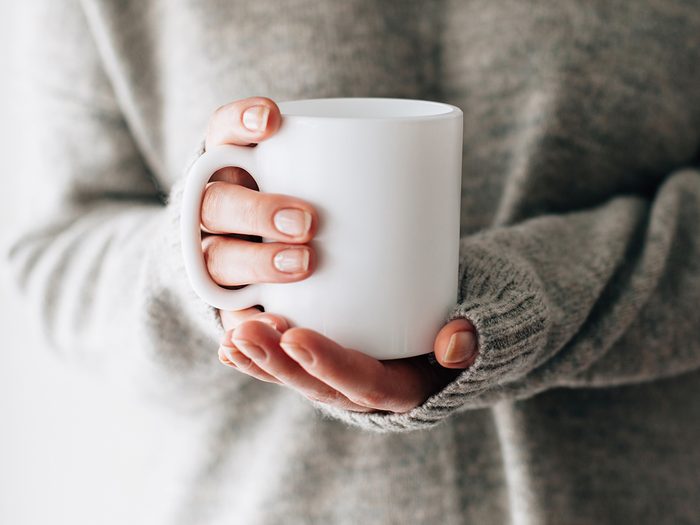
You guzzle caffeinated beverages
“One or two cups of coffee or tea a day is fine, but excessive amounts are known to have a slight diuretic effect, which makes you urinate more and lose more fluid,” says Dr. Levine. “You’re taking in liquid but it’s not necessarily good liquid.” Try adding fresh lemon, lime, or orange slices to your water to spice it up and make it tastier to drink, says Shaw.
Next, check out the best (and worst) drinks to keep you hydrated.